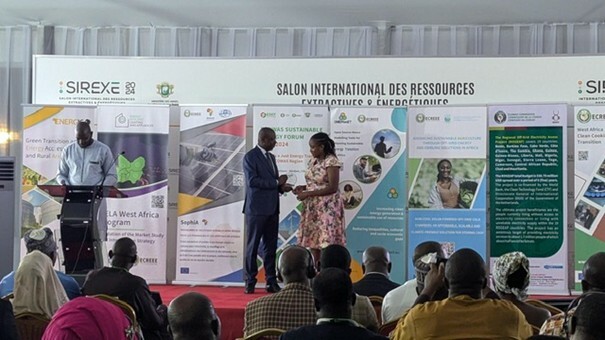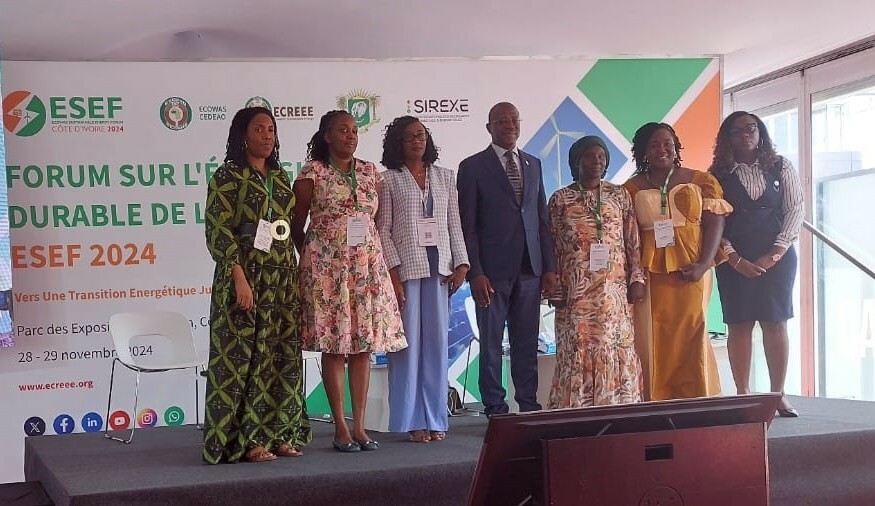IIR wins ECREEE Award for solar cooling and heating efforts in Africa with SophiA
The ECOWAS Sustainable Energy Forum took place in Abidjan, Côte d’Ivoire on November 28-29. The IIR organised a SophiA workshop and was honoured with an ECREEE Award for its outstanding contribution to sustainable energy development in Africa.
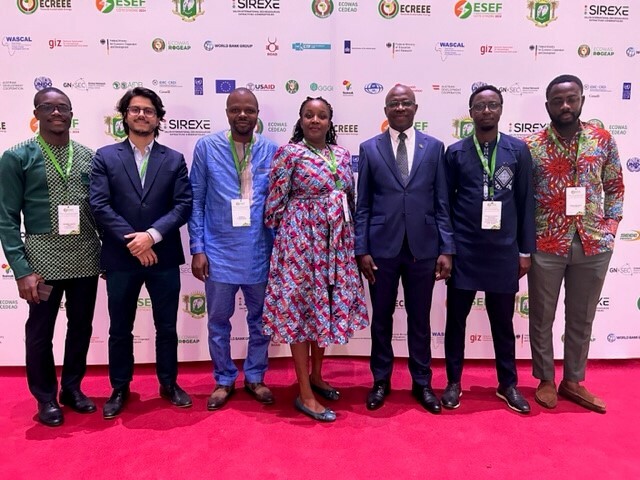
For the second time, the International Institute of Refrigeration (IIR) took part in the ECOWAS Sustainable Energy Forum (ESEF), this year held on November 28-29 in Abidjan, Côte d’Ivoire. The IIR’s participation highlighted the significant progress made by its projects in the region, particularly in the fields of solar cooling, sustainable refrigeration, and strengthened partnerships with stakeholders to continue delivering clean energy solutions.
A step toward a just energy transition
ESEF, organised by the ECOWAS Centre for Renewable Energy and Energy Efficiency (ECREEE), is an annual event designed to foster partnerships and explore investment opportunities in the energy sector across West Africa. This year’s theme, “Towards a Just Energy Transition in the ECOWAS Region”, attracted over 400 participants from 30 countries, including policymakers, industry leaders, and global experts. The forum aimed to address the region’s energy challenges while promoting sustainable and affordable energy solutions, reaffirming ESEF’s place as the region’s premier event for energy stakeholders.
SophiA workshop on solar cooling and heating 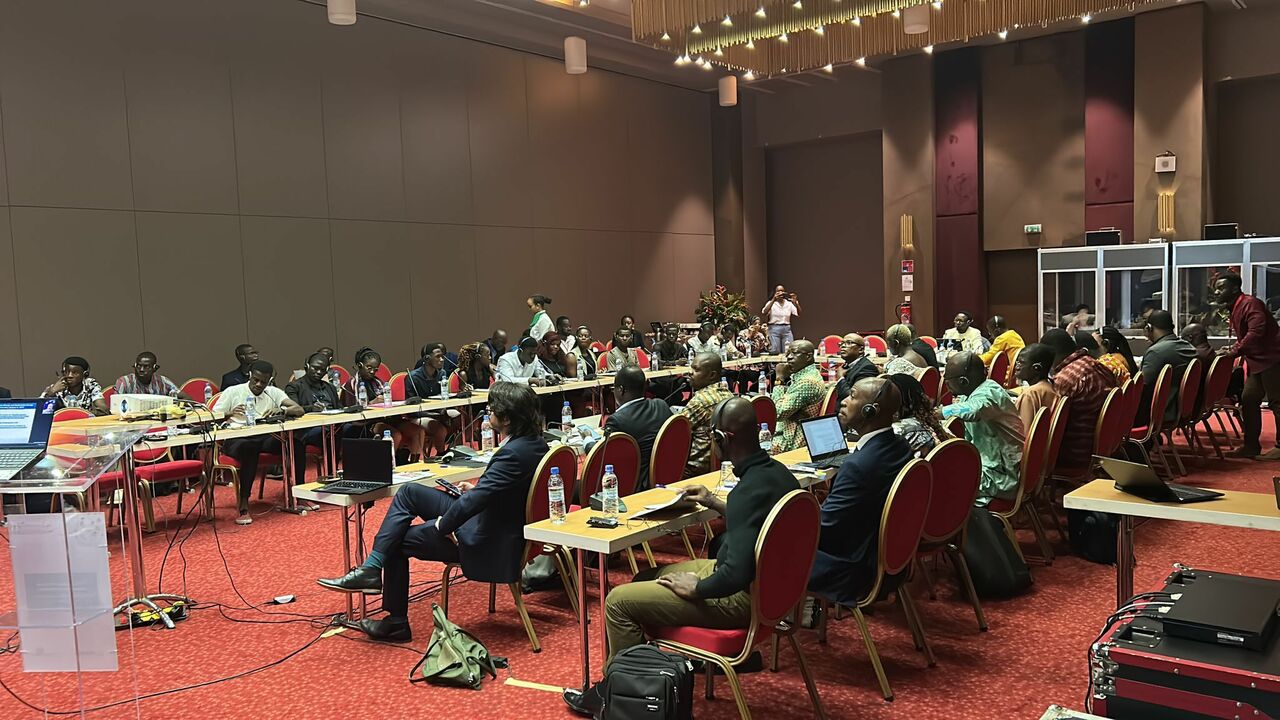
On November 27, the IIR organised a 3-hour workshop focusing on solar cooling and heating technologies, showcasing projects that have already made significant strides in the ECOWAS region. The workshop was held at the Centre des Conventions Hôtel Radisson Blu (Salle Bamako), and was hybrid, allowing participation from partners and students who could not attend in person. More than 70 persons participated in this event!
Moderated by Hary Andrintavy, the workshop featured several insightful presentations:
- Philippe Schild from the European Commission (DG Research and Innovation) delivered the welcome address. He focused on the partnership between the African Union and the European Union, emphasizing their joint efforts since 2017 to support climate adaptation and renewable energy solutions across Africa. He outlined the importance of fostering long-term collaboration to integrate renewable energy sources such as solar, wind, and geothermal power in Africa.
- Professor Michael Kauffeld from the Karlsruhe University of Applied Sciences (HKA) introduced the SophiA project, an initiative that aims to deliver sustainable cooling and heating solutions to Africa using solar power. Launched in 2021, the project has seen significant success in Burkina Faso and is expanding to Cameroon, Uganda, and Malawi. Kauffeld highlighted the role of training local personnel in refrigeration safety and sustainability, which is crucial for the project’s long-term impact.
- Dr. Edem N’Tsoukpoe Kokouvi from 2iE shared his experiences with the SophiA demonstration site in Léo, Burkina Faso. His presentation covered the logistical and technical challenges faced in implementing solar-powered refrigeration technologies, from shipping issues to local material shortages. He emphasised the importance of local capacity-building and how the lessons learned from Burkina Faso will guide future installations in Uganda and Malawi.
- Dr. Ina Colombo, representing the IIR, introduced the AGRI-COOL project, a groundbreaking initiative that seeks to reduce food waste and enhance food security in Africa through solar cooling solutions. The project includes field tests in South Africa, Cape Verde, Somalia, and Zimbabwe, focusing on photovoltaic-powered cooling containers and phase-change materials. The AGRI-COOL project also emphasizes stakeholder engagement and knowledge dissemination to promote sustainable agriculture in rural communities.
- Dr. Abdoulaye Gaye from GIZ Senegal presented the ROCA project, which focuses on reducing the environmental impact of refrigeration and air conditioning (RAC) in West and Central Africa. The project promotes low-global-warming-potential (GWP) cooling solutions and is co-financed by the EU and Germany. Gaye discussed key activities such as policy development, capacity building, and technology transfer, including the implementation of pilot projects like solar-powered cold rooms.
- Hubert Zan from the Energy Commission of Ghana provided an overview of the ECOFRIDGES project, which seeks to improve access and affordability of energy efficient and climate-friendly of cooling appliances in Ghana. Zan highlighted the project’s approach using a Green On-wage financing scheme targeting public and private employees and discussed its achievements, including +2,000 appliances sold and a permanent offering of high-efficiency and low-GWP ACs and refrigerators. He also highlighted challenges faced in implementing these solutions, including low product availability and limited consumer engagement.
- Valorem Energie showcased the Cryosolar system, an innovative mobile refrigeration solution that combines solar energy with cold storage. The Cryosolar system operates 24/7, providing reliable refrigeration for perishable goods like fish in off-grid areas. By reducing the need for ice and improving product quality, Cryosolar helps enhance operational efficiency in remote locations.
- Madi Sakande from U-3ARC addressed the challenges facing African refrigeration technicians, particularly the lack of training facilities, inadequate tools, and insufficient support for professional development in the sector. He stressed the importance of international cooperation and gender inclusion in advancing the refrigeration and air-conditioning industry in Africa.
- Professor Moussa Soro from 2iE presented on training energy engineers in Africa, focusing on the innovative programs offered at 2iE. The institute emphasises energy challenges, entrepreneurship, and leadership skills, providing an ecosystem that fosters responsible entrepreneurship and green innovation.
- Dr. Ina Colombo delivered a second presentation on Women in Cooling, highlighting the IIR’s CaRe working group and INWIC (International Network of Women in Cooling). She shared insights from global surveys on women’s participation in the refrigeration, air-conditioning, and heat pump (RACHP) sector, emphasising the need for continued advocacy to address challenges such as gender pay gaps and limited access to leadership roles for women in some regions.
- Marco Duran from IIR with Michael Kauffeld from HKA discussed two upcoming IIR Policy Briefs. They emphasized the importance of adopting natural refrigerants in Africa to reduce greenhouse gas emissions and improve energy efficiency, as well as the potential for solar thermal solutions to meet regional energy needs. Participants were invited to contribute to the development of those policy briefs. Contributions can still be submitted by contacting info@iifiir.org.
- Marco Duran also presented on the opportunity of developing an ECOWAS Regional Guide for National Cooling Action Plans to support member states in assess the needs and set the policies to ensure access to cooling services, while meeting the climate targets set by the Paris Agreement. He then highlighted the potential for using the carbon market, under Articles 6.2 and 6.4 of the Paris Agreement.
- Yao Bernard Koffi from ECOWAS wrapped up the presentations with a focus on the carbon market in West Africa, exploring its potential to mobilise climate finance and support sustainable development in the region. He outlined the steps needed to establish a regional carbon market, including harmonising regulations and building local capacities.
Throughout the workshop, participants engaged in lively Q&A sessions, exchanging ideas and solutions for overcoming the region’s energy and cooling challenges. Following the presentations, a networking break provided ample opportunity for further discussions and collaboration.
The PPT presentations are available from the SophiA website.
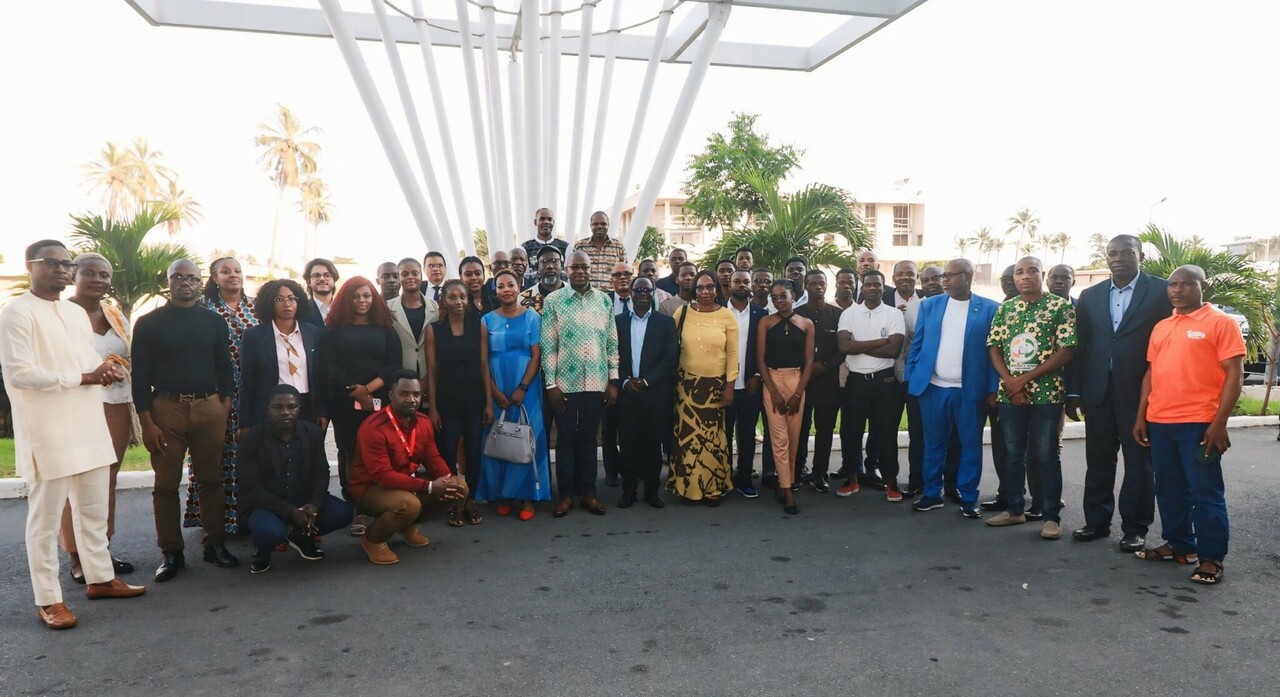
On November 29, in addition to the SophiA workshop, the secretary of IIR CaRe working group and INWIC President-elect 2025 Ina Colombo participated in a panel session on women entrepreneurs in the clean energy sector, moderated by the GIZ. Her presentation sparked a vibrant discussion on the challenges and opportunities facing women in the energy sector, particularly in Africa. Ina Colombo presented the results from West African respondents of Women in Cooling Worldwide Survey undertaken by CaRe, aimed to better understand the career paths, motivations, challenges and opportunities faced by women working in the industry. Some workshop attendees questioned the viability of the results presented which led to the possibility of conducting a regional survey in the ECOWAS zone to further explore these issues. The INWIC mentoring and networking activities were highlighted as key strategies to enhance women’s participation in the RACHP sector.
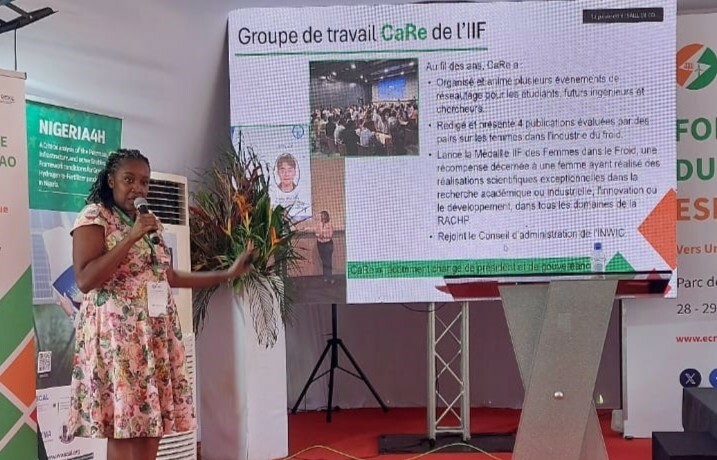 |
|
In the afternoon, the IIR participated in another panel session on energy modeling and planning for sustainable development moderated by SophiA partner 2iE, where the AGRI-COOL project was presented. The session also featured sister projects Energica and OnePlanet.
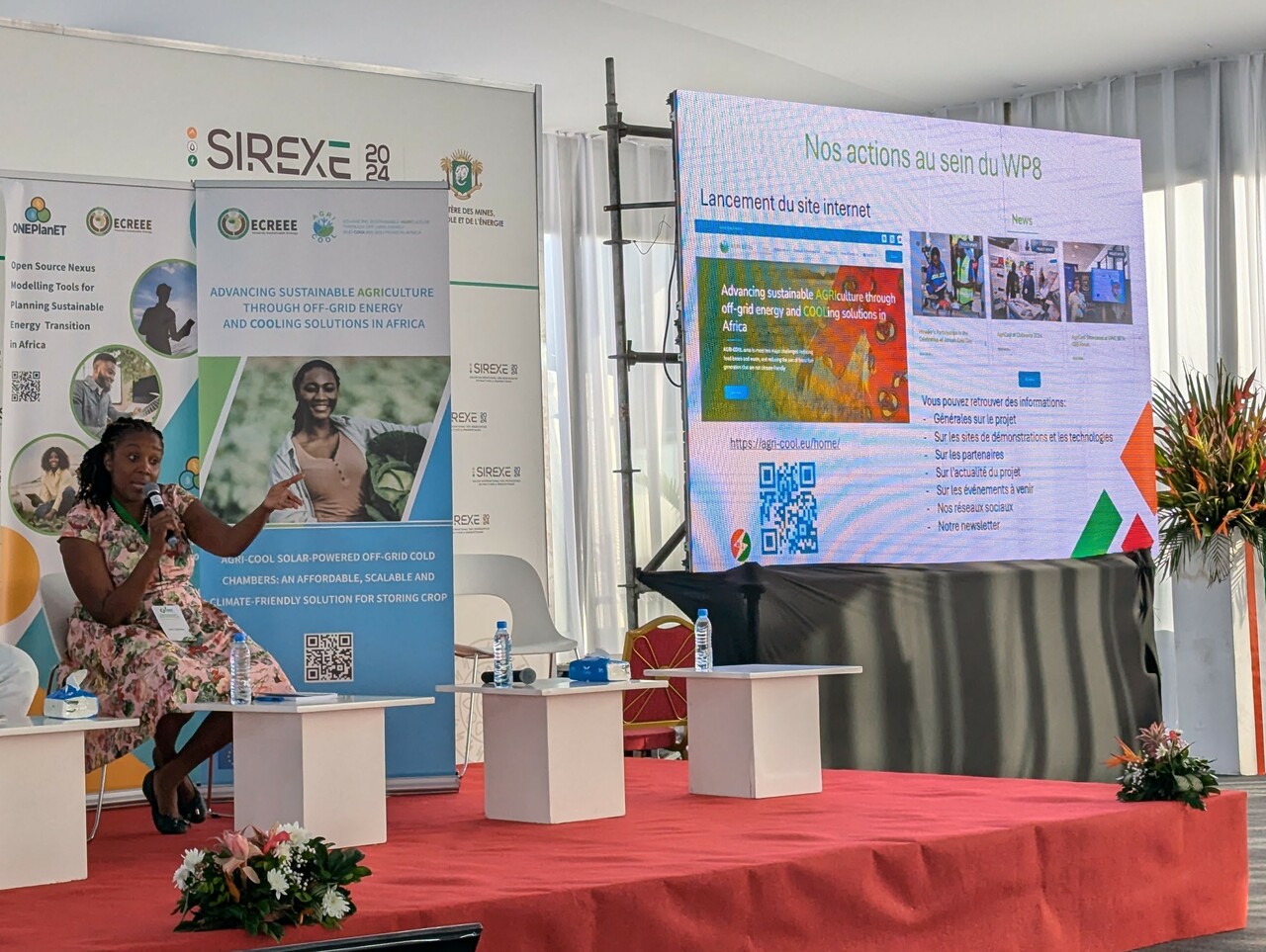 |
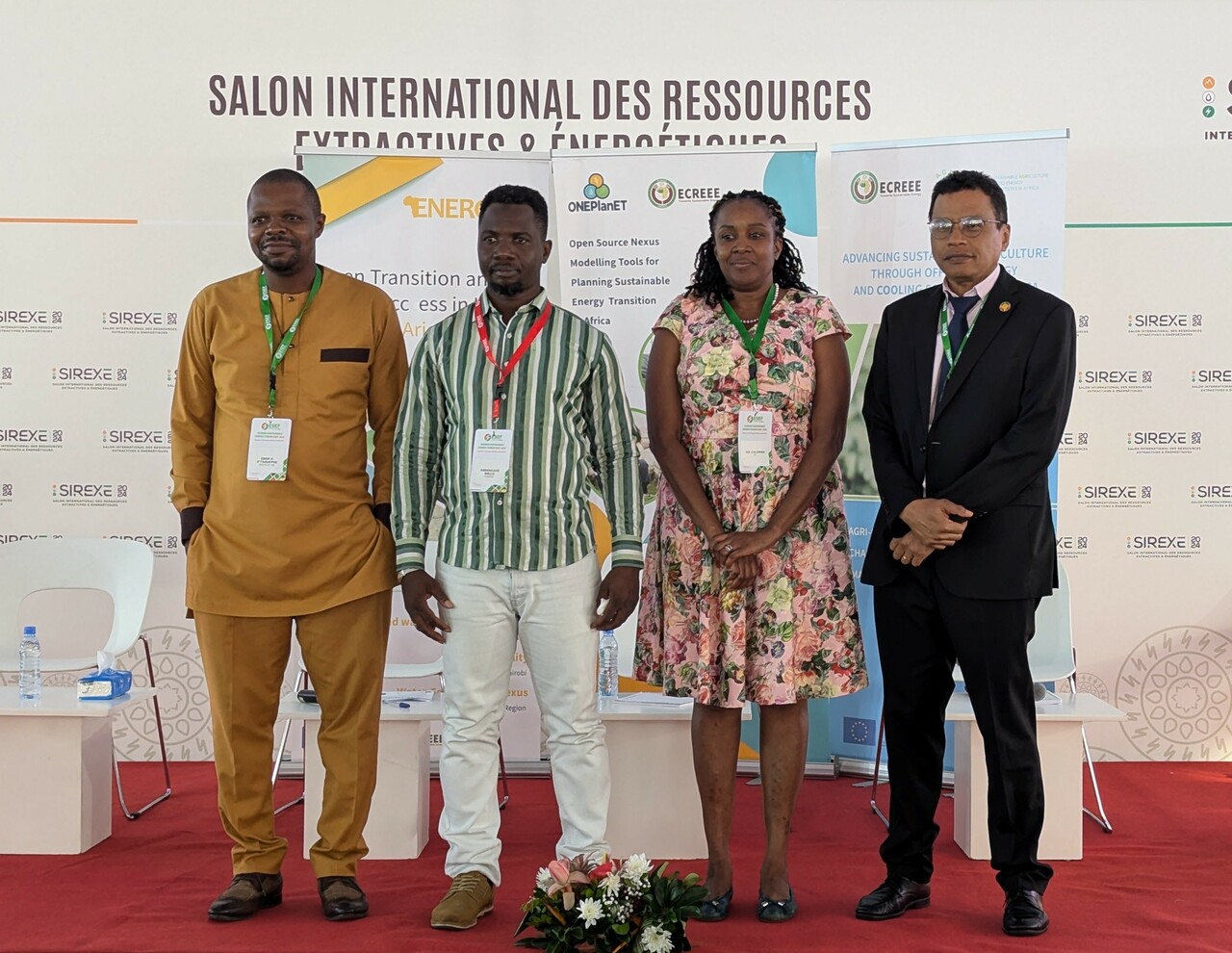 |
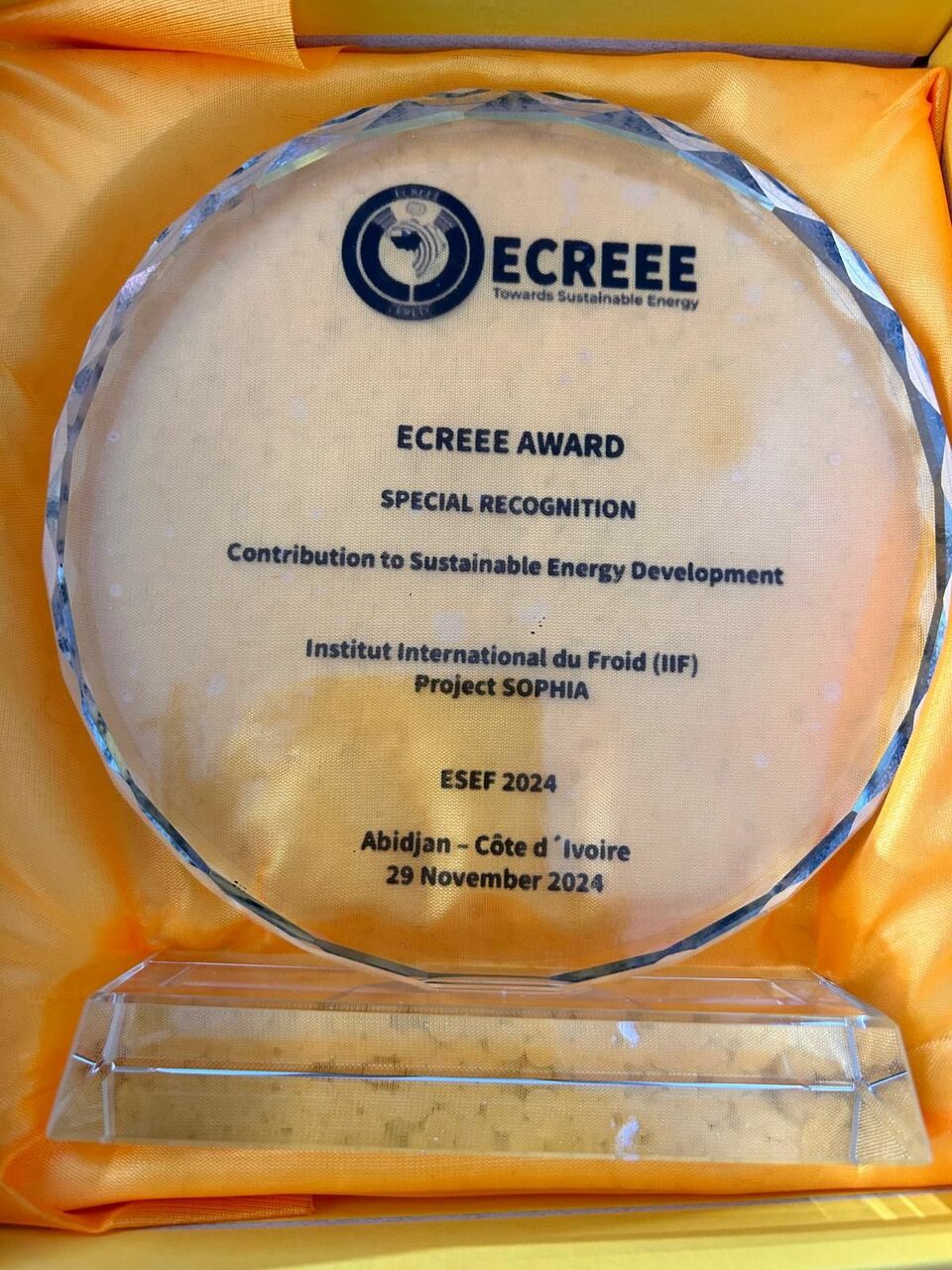
Recognition at ESEF 2024
The IIR was awarded the prestigious ECREEE Award for its outstanding contribution to sustainable energy development through the SophiA project, recognising the institute’s efforts in promoting solar cooling and sustainable energy technologies across Africa.
The IIR’s participation at ESEF 2024 underscored the growing importance of sustainable cooling solutions and energy-efficient technologies in West Africa. The diverse range of projects and innovations presented highlighted the pivotal role of collaboration and knowledge exchange in overcoming the region’s energy challenges. As we look forward to ESEF 2025, the IIR is excited about the opportunities to build on these achievements, expand partnerships, and further contribute to a just and sustainable energy transition across the region. The future of cooling, clean energy, and sustainable development in Africa is bright, and we can’t wait to see what next year’s forum will bring!
